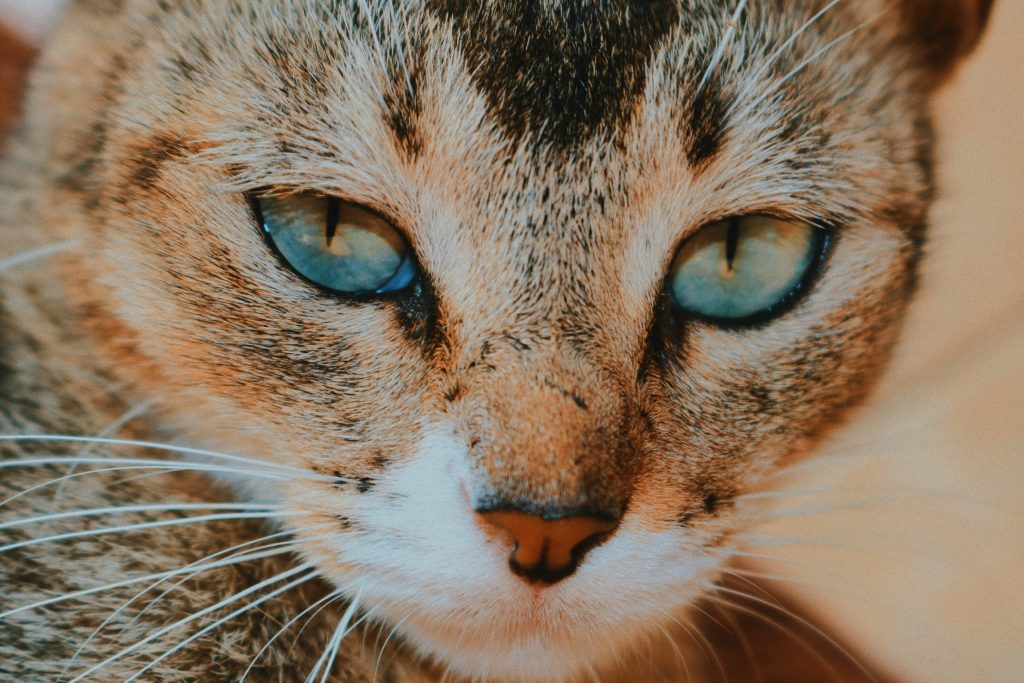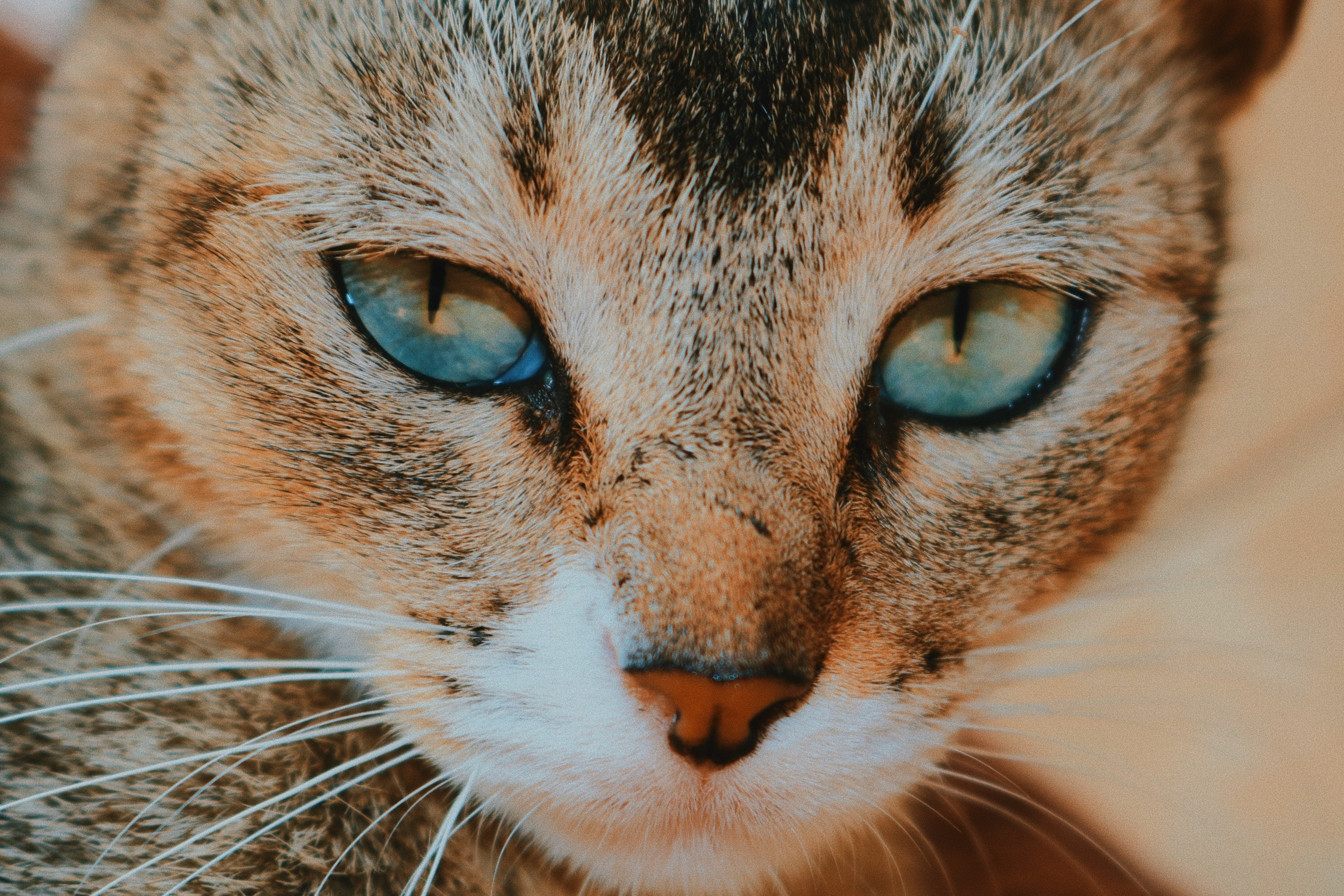How Do I Get My Cat To Stop Spraying?
It can be difficult and frustrating to deal with cat spraying. This behavior can be not only annoying but could also cause damage to your furniture and home. This blog post will show you how to stop this behavior and maintain a happy, healthy relationship with your cat. Understanding why your cat sprays is important. You can then explore different solutions to tackle the root cause. You can stop your cat from spraying by being patient and persistent.

Understanding Cat Spraying Behavior
When your cat sprays, it can be a frustrating experience for you as a cat parent. It can be frustrating and confusing, but you need to know why cats spray and how to stop them. This section will explore the causes of cat spraying and how to recognize it. We’ll also discuss where cats spray.
Why do cats spray?
The most common reason cats spray is to mark their territory. It is particularly true of male cats, who spray to show other cats that they own the area. To claim their territory, they spray urine onto walls, furniture and other vertical surfaces. Cats may also spray if they are anxious or stressed. This behavior can give them a feeling of security and comfort.
How can I tell if my cat is spraying?
You can tell if your cat is spraying by a few different signs. Urine odors in places where they shouldn’t be are the most obvious. Your cat may be seen circling around a piece of furniture or a wall and raising its tail. If your cat spends more time than normal sniffing a particular area, and appears to be particularly interested in marking that area, this could also be an indication.
Where do cats spray?
Cats can spray on any surface, but they prefer vertical surfaces. This includes furniture, walls, and curtains. Also, they may spray near windows and doors to mark their territory. It’s important that you clean the area thoroughly if your cat sprays in it consistently. This will discourage them from spraying.
Understanding the reasons why cats spray, and how to recognize the behavior will help you deal with the problem and prevent it becoming worse. Next, we’ll discuss some tips to stop cat spraying.
How to Deal with Cat Spraying
Cat spraying can be a frustrating problem for cat owners. You cat may be spraying for a variety of reasons, including to mark its territory or out of anxiety. This section will provide some useful tips on how to deal with cat spraying.
Spay or Neuter your cat
Spaying or neutering your cat is the best way to reduce or stop spraying. Unneutered males are more likely than not to spray urine in order to mark their territory or attract females. By neutering or spaying your cat, you can reduce this behavior and make it less likely that they will spray.
Make sure your cat feels safe and secure
When cats feel threatened or anxious, they may spray. It’s important to ensure that your cat feels secure and safe in your home. Your cat will appreciate a private and comfortable space to retreat in when stressed. Make sure that your cat always has food, water and a litterbox available.
Remove Cat Spray As Soon as Possible and Thoroughly
To prevent your cat from spraying, it’s important to remove the cat spray as soon as possible. To remove the smell completely, use an enzyme cleaner designed specifically for cat urine. Ammonia-based cleaning products can worsen the smell and encourage your cat’s spraying.
Use Positive Reinforcement
Positive reinforcement can be a powerful way to stop your cat from spraying. Reward your cat with praise or treats when it uses the litterbox. Avoid punishing your cat if they spray as this can worsen the problem. Redirect your cat’s behavior towards the litter box, and reward it when they use that.
When to seek professional help
Cat spraying is a difficult and frustrating experience for pet owners. There are many ways to resolve the problem, including behavioral training and home remedies. However, it may be necessary to seek professional help at some point. This section of the article will discuss two ways to seek professional help. These are medications for cat spraying or consulting with a vet or animal behaviorist.
Cat Spraying Medications
Medications may be prescribed if your cat’s spraying is severe or persistent. Veterinarians may prescribe a variety of medications to reduce spraying, including antidepressants and antianxiety drugs.
Note that medications may have side effects or not be as effective in treating cat spraying. In some cases, however, medication can be used to manage the problem. This is especially true if other techniques of behavioral training have failed.
Consultation with a veterinarian or animal behaviorist
Consult a veterinarian or an animal behaviorist if your cat’s spraying persists, despite all your efforts to stop it. A veterinarian can help rule out underlying medical conditions that could be contributing to your cat’s spraying behavior and recommend appropriate treatment options.
A behaviorist for animals can identify the causes behind your cat’s spraying and create a plan of behavior modification to stop it. They can provide support and guidance throughout the entire training process.
In some cases, professional help is the best way to control cat spraying. It’s best to try all other options first before consulting a professional or turning to medication. It is possible to change your cat’s spraying behaviour with patience, persistence and the correct training techniques.
Conclusion
To stop your cat spraying, you will need patience, consistency and understanding. You must identify the cause of the behavior, and then address it. You can prevent spraying by providing your cat with adequate litter boxes, cleaning them regularly, and paying them enough attention. You can also reduce spraying by using pheromones, consulting a vet, and neutering the cat. Punishment is not the answer to this problem and may worsen it. You can stop your cat spraying with the right approach and have a clean and peaceful home.

